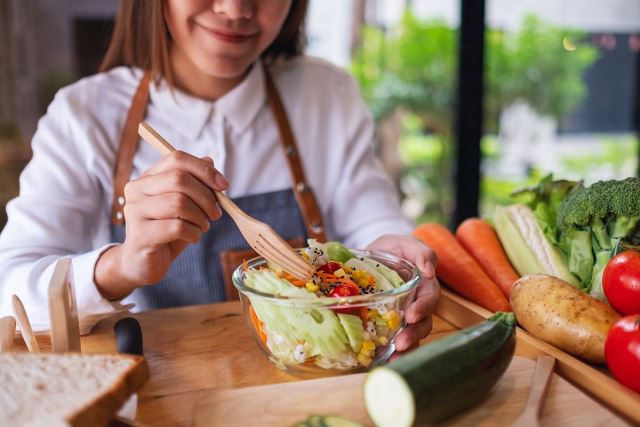
Unveiling the Mystery of Craving Vegetables
Have you ever wondered why you find yourself constantly craving vegetables? It’s not just a passing whim or a fleeting desire; there might be deeper reasons behind your persistent vegetable cravings. Understanding the mystery of craving vegetables can shed light on your body’s needs and help you make informed choices about your diet.
One possible explanation for craving vegetables is that your body is signaling a need for essential nutrients. Vegetables are packed with vitamins, minerals, and antioxidants that are vital for optimal health. Your body might be lacking in certain nutrients, and craving vegetables is its way of seeking out those missing elements. Paying attention to these cravings and incorporating a variety of vegetables into your meals can help fulfill your nutritional needs.
Additionally, craving vegetables can be a sign of a shift towards a healthier lifestyle. As you make positive changes in your diet and prioritize nourishing foods, your taste preferences may naturally gravitate towards vegetables. It’s a reflection of your body’s adaptation to a more balanced and nutrient-dense eating pattern.
Moreover, seasonal changes can influence our food preferences, and craving vegetables might be a response to nature’s offerings. During the spring and summer months, when fresh produce is abundant, our bodies may instinctively crave the vibrant colors and flavors of seasonal vegetables.
Emotional and psychological factors can also play a role in vegetable cravings. Vegetables are often associated with health and well-being, and consuming them can provide a sense of satisfaction and fulfillment. Craving vegetables may be a way for your body to seek emotional nourishment as well.
Intriguingly, the state of your gut health can also influence your vegetable cravings. The complex network of microorganisms in your gut, known as the microbiome, has a profound impact on your overall health. A healthy gut microbiome thrives on a diverse range of plant-based foods, including vegetables. Craving vegetables could be a result of your gut microbes signaling their need for fiber and other beneficial compounds found in vegetables.
In conclusion, craving vegetables all the time is not a mere coincidence. It’s a fascinating interplay of your body’s nutritional needs, lifestyle choices, seasonal influences, emotional well-being, and gut health. Embracing and honoring these cravings can lead to a more balanced and nourishing diet. So, next time you find yourself yearning for a plate of fresh, crunchy vegetables, listen to your body and indulge in the goodness they offer.
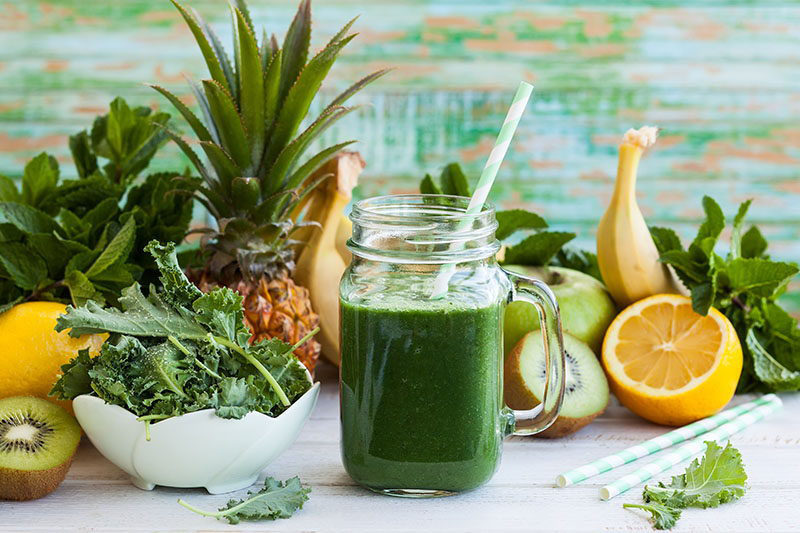
Craving Vegetables: A Sign of Nutritional Needs
The Body’s Way of Communicating
Have you ever experienced a strong and persistent craving for vegetables? While some people may find this craving peculiar, it could actually be a powerful indication that your body is communicating its nutritional needs. Craving vegetables is not just a random occurrence; it is a valuable signal that should not be ignored.
Vegetables are packed with essential vitamins, minerals, and antioxidants that are vital for maintaining optimal health. When your body is deficient in certain nutrients, it can trigger cravings as a way to rectify the imbalance. Vegetables, with their rich nutrient profiles, offer a natural solution to address these deficiencies. Your body’s craving for vegetables is a clear indication that it recognizes the importance of obtaining these essential nutrients.
Furthermore, craving vegetables can also be a result of your body’s innate wisdom. Over time, as you make healthier choices and prioritize nourishing foods, your taste preferences can change. This shift indicates a positive transformation in your dietary habits and a greater appreciation for foods that support your overall well-being. By embracing these cravings and incorporating a diverse array of vegetables into your meals, you can further enhance your nutritional intake.
It’s worth noting that emotions and psychological factors can also influence cravings. Many people associate vegetables with health and vitality, and consuming them can provide a sense of satisfaction and well-being. Therefore, craving vegetables may not only be about fulfilling physical needs but also about seeking emotional nourishment.
In conclusion, if you find yourself craving vegetables all the time, consider it a valuable message from your body. Embrace these cravings and explore different ways to incorporate vegetables into your meals. By honoring your body’s natural signals, you can nurture your nutritional needs and cultivate a deeper connection with the foods that support your well-being. So, the next time you have a hankering for a plate of crisp, colorful vegetables, indulge in their goodness and savor the satisfaction of nourishing your body from within.
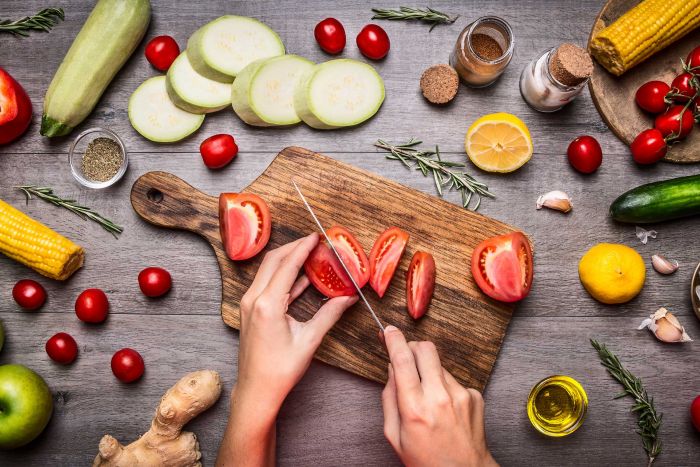
Embracing a Healthier Lifestyle: How Vegetable Cravings Can Signal a Shift in Eating Habits
The Power of Vegetables in Nourishing the Body
Have you ever wondered why you find yourself craving vegetables all the time? It may be a surprising realization, but these cravings can actually be a positive indication of a shift towards a healthier lifestyle and improved eating habits. Vegetables play a crucial role in nourishing our bodies, and when we start to crave them, it signifies a deeper understanding of their importance.
Vegetables are packed with essential nutrients, fiber, and antioxidants that support overall health and well-being. They provide a wide range of vitamins and minerals that our bodies need to function optimally. When we experience cravings for vegetables, it could be our body’s way of signaling a deficiency in certain nutrients that these vibrant plants can provide.
Furthermore, vegetable cravings often arise as a result of a conscious effort to adopt a healthier eating pattern. As we make conscious choices to prioritize nutritious foods, our taste preferences naturally begin to change. Craving vegetables becomes a reflection of our body’s adaptation to this new and improved eating habit. It shows that we have developed a deeper appreciation for foods that nourish us from the inside out.
By embracing these vegetable cravings and incorporating them into our meals, we can further enhance our well-being. Vegetables offer a wide array of flavors, textures, and colors, making them versatile and enjoyable to include in various dishes. They not only provide essential nutrients but also add vibrancy and freshness to our meals.
In conclusion, when you find yourself constantly craving vegetables, take it as a positive sign of your body’s desire for optimal nutrition and a shift towards a healthier lifestyle. Embrace these cravings, experiment with new vegetable recipes, and savor the incredible benefits that vegetables bring to your overall well-being. By nourishing your body with an abundance of vegetables, you are not only satisfying your cravings but also empowering yourself to live a healthier and more vibrant life.
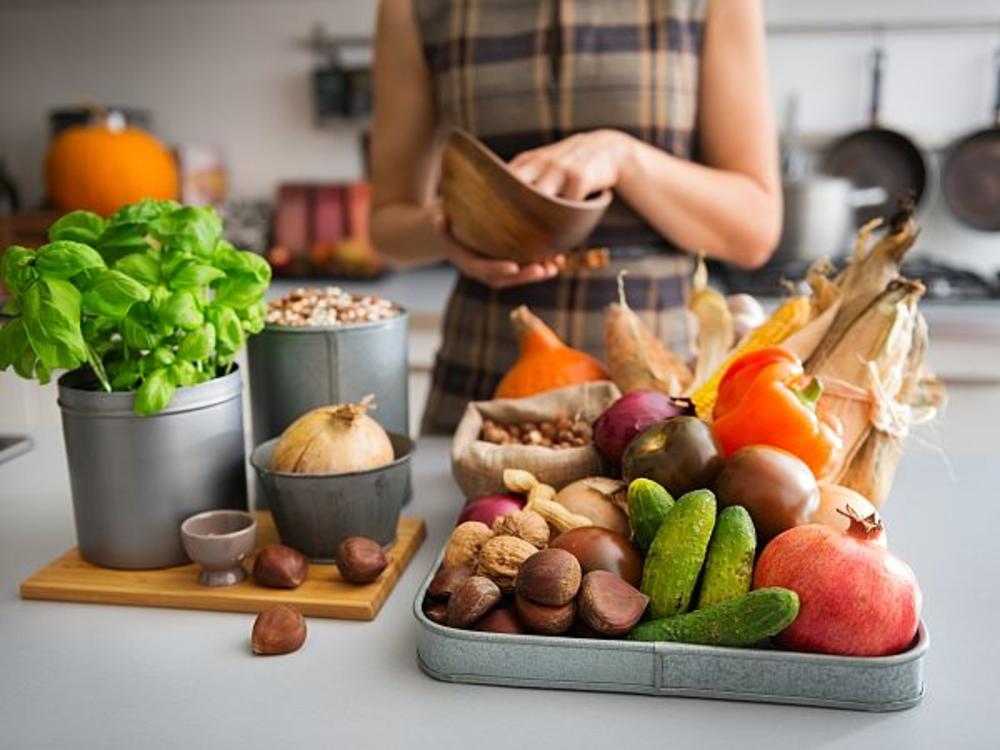
The Role of Nutrient Deficiencies: Addressing the Body’s Cry for Essential Vitamins and Minerals
Unlocking the Connection Between Cravings and Nutritional Imbalances
Have you ever wondered why you crave vegetables all the time? It turns out that these cravings could be your body’s way of communicating its need for essential vitamins and minerals. Nutrient deficiencies can lead to imbalances in the body, and cravings for specific foods, such as vegetables, can be a sign that your body is trying to restore equilibrium.
Vegetables are nutrient powerhouses, rich in vitamins, minerals, and antioxidants. When you crave vegetables, it may be because your body is lacking these essential nutrients. For example, if you’re craving leafy greens like spinach or kale, it could indicate a need for iron or folate. Similarly, a craving for colorful vegetables like bell peppers or carrots may be a sign of a vitamin A deficiency.
It’s important to pay attention to these cravings and address any potential nutrient deficiencies. Incorporating a variety of vegetables into your diet can help provide the vitamins and minerals your body needs to function optimally. By satisfying your vegetable cravings, you are not only addressing nutrient imbalances but also supporting your overall health and well-being.
Additionally, cravings for vegetables may also be influenced by lifestyle factors. Adopting a healthier eating pattern, such as a plant-based or Mediterranean diet, can change your taste preferences and lead to a greater desire for vegetables. These dietary changes can have a positive impact on your long-term health and may even reduce the risk of chronic diseases.
In conclusion, craving vegetables all the time can be a valuable clue that your body is in need of specific nutrients. By recognizing these cravings and incorporating a variety of vegetables into your diet, you can address nutrient deficiencies and support your overall health. So, the next time you find yourself longing for a plate of vibrant vegetables, embrace it as a signal from your body to nourish it with the essential vitamins and minerals it craves.
The Impact of Seasonal Changes: Exploring the Influence of Nature on Our Food Preferences
Nature’s Way of Providing What Our Bodies Need
Have you ever noticed that your cravings for vegetables change with the seasons? It turns out that our bodies are intricately connected to the rhythms of nature, and our food preferences often reflect this connection. Seasonal changes can have a profound impact on the availability and nutritional content of foods, including vegetables, which in turn can influence our cravings.
During the warmer months, when fresh and vibrant vegetables are abundant, our bodies naturally crave the lightness and freshness they provide. The crispness of a salad or the sweetness of summer fruits can be incredibly satisfying. On the other hand, during the colder months, our bodies seek warmth and nourishment, leading to cravings for heartier vegetables like root vegetables and squashes.
These seasonal cravings are not just a coincidence. Nature has a way of providing us with the nutrients we need at different times of the year. For example, leafy greens are rich in vitamins and minerals that support our immune system, making them more appealing during the winter when colds and flu are prevalent. Similarly, root vegetables are packed with antioxidants and fiber, which can help us feel grounded and satisfied during the colder months.
By honoring these seasonal cravings and incorporating a variety of seasonal vegetables into our diets, we can align ourselves with the natural rhythms of the earth and provide our bodies with the nutrients they need. It’s a beautiful symbiotic relationship between nature and our bodies, and by listening to our cravings, we can nourish ourselves in the most harmonious way.
In conclusion, our cravings for vegetables all the time can be influenced by seasonal changes and the nutritional needs of our bodies. By recognizing and embracing these cravings, we can tap into nature’s wisdom and provide our bodies with the nutrients they require at different times of the year. So, the next time you find yourself craving vegetables, consider the season and indulge in the bountiful offerings that nature provides. Your body will thank you for it.
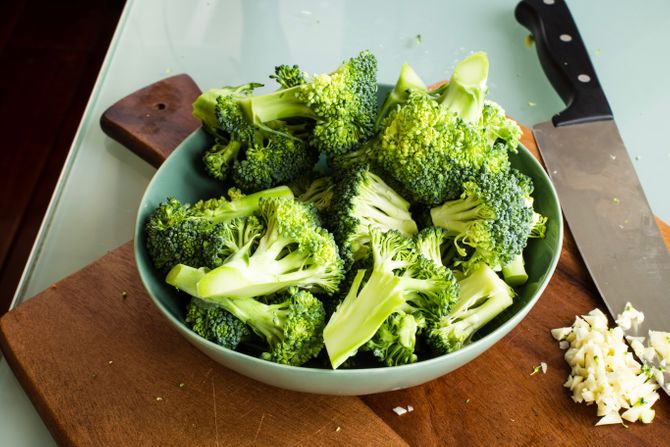
Emotional and Psychological Factors: Examining the Link Between Cravings and Mental Well-being
The Connection Between Mind, Body, and Vegetable Cravings
Cravings for vegetables can go beyond physical nourishment and extend into the realm of our emotional and psychological well-being. Our bodies are intricately connected to our minds, and our food cravings can often be influenced by our emotional state.
In times of stress, anxiety, or even sadness, some individuals may find themselves craving vegetables as a way to seek comfort and balance. Vegetables, with their vibrant colors and natural goodness, can provide a sense of nourishment and grounding that can help alleviate emotional distress. They are not only packed with essential nutrients but also contain phytochemicals that support brain health and emotional well-being.
Furthermore, the act of preparing and consuming vegetables can be therapeutic in itself. Engaging in the process of washing, chopping, and cooking vegetables can be a mindful activity, allowing us to focus on the present moment and cultivate a sense of calm. The vibrant colors and fresh aromas can stimulate our senses and uplift our mood.
It is important to note that craving vegetables as a means of emotional support is not a substitute for addressing the underlying emotional issues. However, incorporating more vegetables into our diets can be a valuable component of a holistic approach to mental well-being.
In conclusion, our cravings for vegetables all the time can be influenced by emotional and psychological factors. By recognizing the connection between our mind, body, and vegetable cravings, we can use vegetables as a tool for supporting our emotional well-being. So, the next time you find yourself craving vegetables, take a moment to reflect on your emotional state and allow the nourishment of these vibrant foods to support both your physical and mental health.

Cravings as a Reflection of Gut Health: Understanding the Role of the Microbiome in Craving Vegetables
Nurturing the Gut-Brain Connection
The human body is home to trillions of microorganisms that make up our gut microbiome, playing a crucial role in our overall health and well-being. Recent research suggests that the composition of our gut microbiota can influence our food preferences and cravings, including the desire for vegetables.
The gut microbiome is involved in the digestion and absorption of nutrients, and it also communicates with the brain through a bidirectional pathway known as the gut-brain axis. This communication network influences various aspects of our health, including our mood, emotions, and food choices.
Studies have shown that a diverse and balanced gut microbiome is associated with a reduced risk of cravings for unhealthy foods and a preference for nutrient-dense options like vegetables. Certain species of gut bacteria have been found to produce neurotransmitters and short-chain fatty acids that can impact our brain chemistry and influence our cravings.
Moreover, the consumption of vegetables can provide prebiotic fibers that serve as fuel for beneficial gut bacteria, promoting their growth and diversity. As these bacteria thrive, they contribute to a healthier gut environment, improving nutrient absorption and supporting optimal brain function.
Nurturing the gut-brain connection through a diet rich in vegetables and other fiber-rich foods can help promote a healthy microbiome, reducing cravings for processed and unhealthy options. By prioritizing the consumption of vegetables, we not only nourish our bodies but also cultivate a gut environment that supports overall well-being.
In conclusion, cravings for vegetables can be influenced by the state of our gut health and the intricate relationship between our gut microbiome and brain. By prioritizing a diverse and fiber-rich diet that includes a variety of vegetables, we can support our gut-brain connection and nurture our overall health and well-being. So, the next time you find yourself craving vegetables, remember that it may be your body’s way of signaling the need for a healthier gut environment.
Frequently Asked Questions (FAQs)
Why am I craving vegetables all the time?
- Craving vegetables can be a sign of nutrient deficiencies, a shift towards healthier eating habits, or an influence of emotional and psychological factors. It’s important to listen to your body’s signals and ensure a balanced diet.
Are there specific vegetables I should focus on if I have cravings?
- While individual preferences may vary, it’s generally recommended to include a variety of vegetables in your diet to ensure a diverse range of nutrients. Incorporate leafy greens, cruciferous vegetables, root vegetables, and colorful options for a well-rounded intake.
How can I address emotional cravings for unhealthy foods?
- Emotional cravings can be managed by finding healthy alternatives, incorporating mindful eating practices, and addressing underlying emotional needs through other means such as self-care, stress reduction, and seeking support if necessary.
Can gut health affect cravings for vegetables?
- Yes, a healthy gut microbiome plays a role in food preferences, including cravings for vegetables. Nurturing the gut-brain connection through a fiber-rich diet and probiotic-rich foods can positively impact cravings.
Is it normal to crave vegetables more during certain seasons?
- Yes, seasonal changes can influence our cravings as our bodies naturally seek the nutrients present in seasonal vegetables. Embrace the seasonal bounty and enjoy the variety of vegetables available throughout the year.
Remember, if you have persistent or extreme cravings, it’s always recommended to consult with a healthcare professional to rule out any underlying health conditions or nutritional deficiencies.
Conclusion
In conclusion, craving vegetables all the time can be a positive sign that your body is seeking nourishment and balance. It may indicate a need for essential nutrients, a desire for healthier eating habits, or even an emotional connection between your mind and body. By paying attention to these cravings and incorporating a variety of vegetables into your diet, you can support your overall well-being and promote optimal health. Remember to listen to your body, nurture your gut health, and make mindful choices that align with your nutritional needs. Embrace the power of vegetables and enjoy the many benefits they offer for your body and mind.
